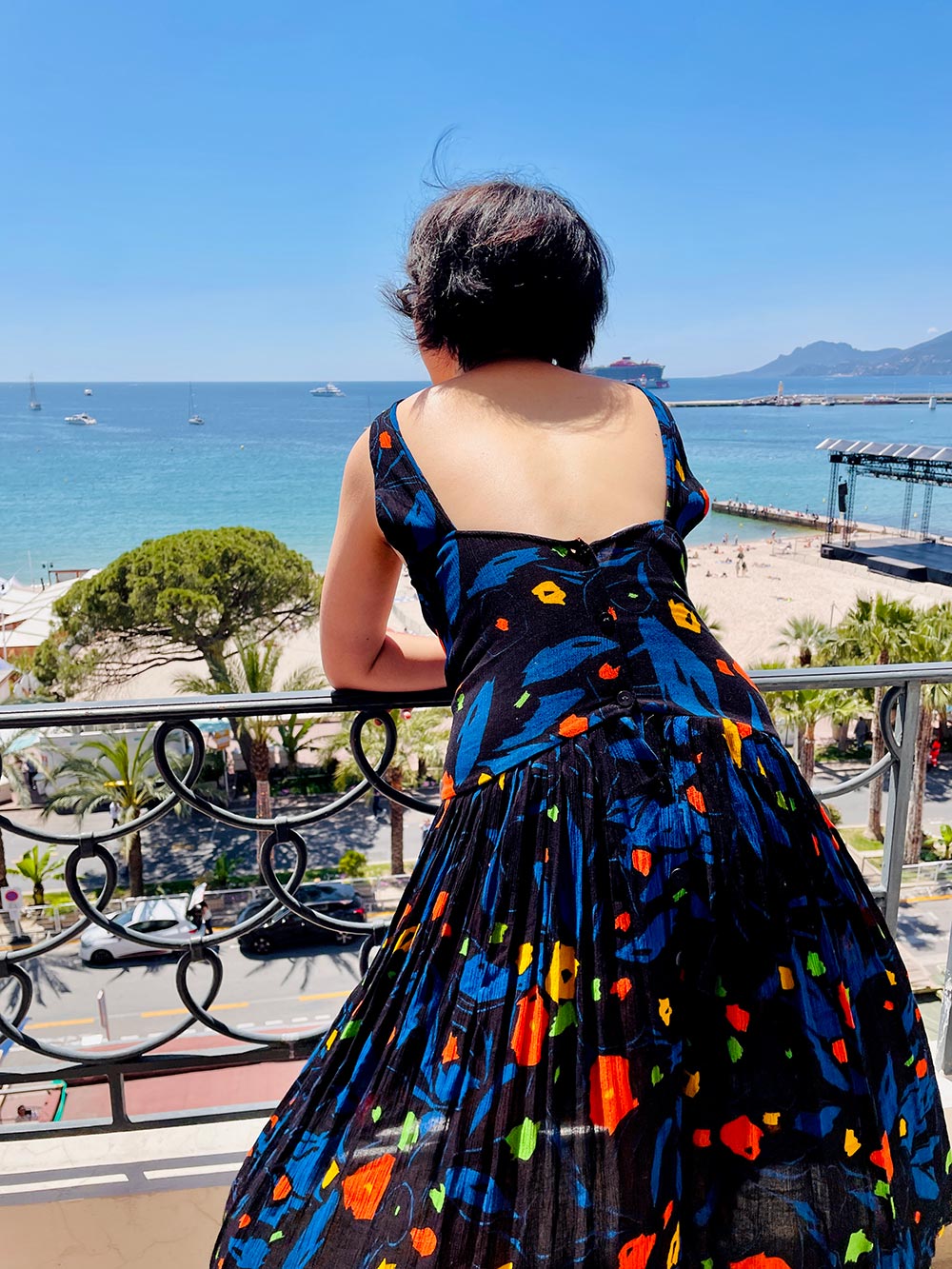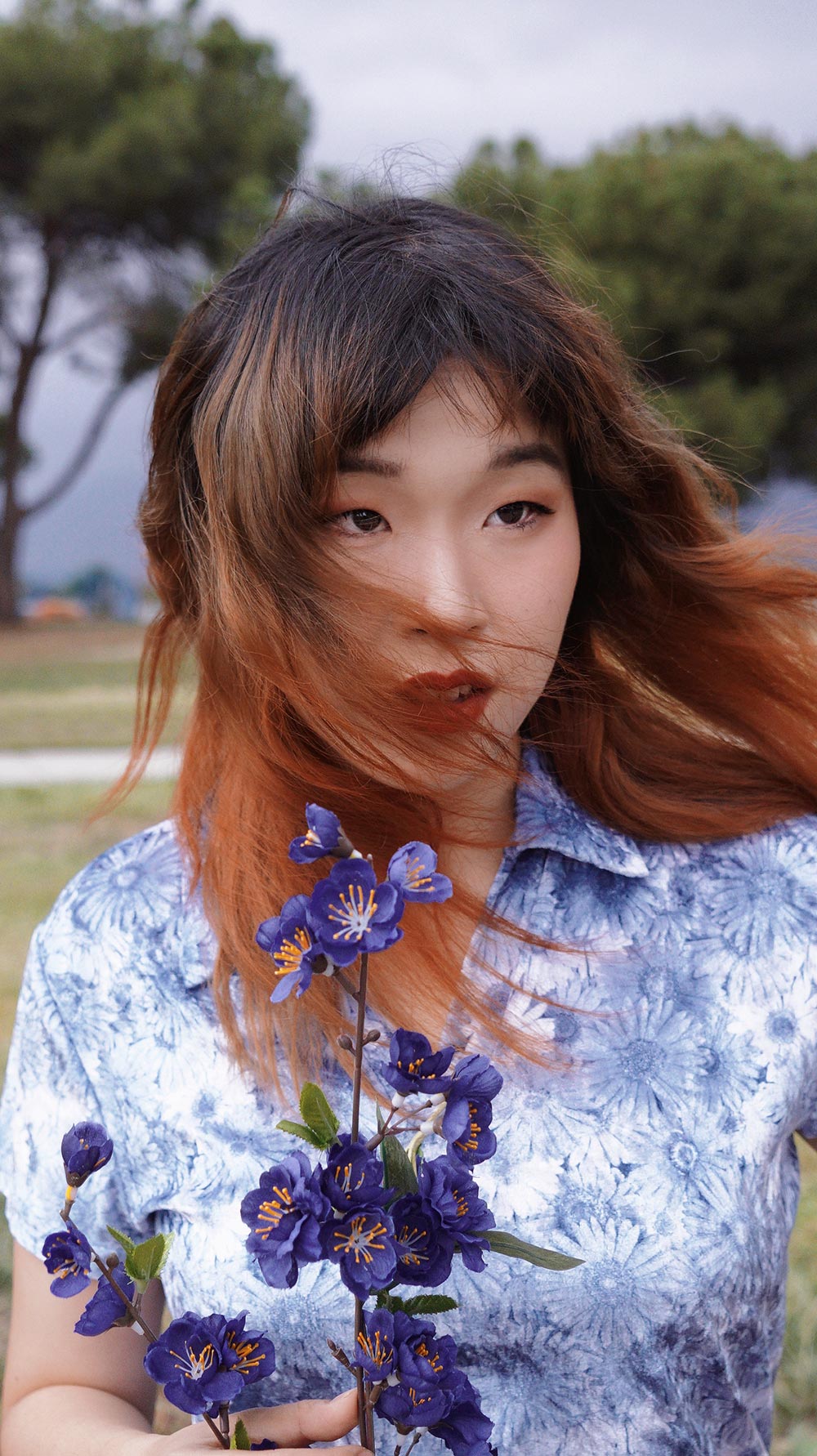Tianzhuo, can you briefly walk us through your story – how you started and how you got to where you are today?
My story starts in Beijing when I was three years old, crying over Patrick Swayze’s character going to heaven in Ghost while watching HBO. My mom was a journalist and TV news producer, so I was exposed to media from a very young age. That early emotional connection to cinema planted the seed for everything that followed.
In high school, I ran a movie appreciation club and organized watch parties, which is when I started seriously dreaming about making films. The leap from Beijing to California was huge – I was accepted into ArtCenter College of Design in Pasadena and flew 12 hours to pursue my dream. After that, I attended Chapman University’s Dodge College, where I learned the craft of editing and made several award-winning short films.
My breakthrough came with my thesis film, “Drifting Boat,” about an elderly Chinese immigrant struggling to connect with her granddaughter. We shot it in Glendale, and it premiered at TCL Chinese Theatre. The film went on to win six festival awards and opened many doors for me in the documentary space.
One of those doors led to “Did You Forget Mr. Fogel?,” a documentary about an American English teacher wrongfully detained in Russia. I came on as colorist, and the film launched the #FreeMarcFogel campaign. After five years in a Russian corrective colony, Marc Fogel was finally released. Knowing that our documentary played a role in bringing someone home to their family is incredibly humbling.
This success led to commercial work with Crazy Maple Studio, which TIME Magazine named one of the Top 100 Most Influential Companies of 2024. I’ve edited viral mini-dramas like “Snatched a Billionaire to Be My Husband” and “True Luna,” which have millions of views. I’ve also worked on IMAX films like “Cities of The Future,” narrated by John Krasinski and directed by two-time Oscar nominee Greg MacGillivray.
What were some of the biggest challenges you faced, and how did you overcome them?
The biggest challenge was definitely the cultural transition from Beijing to LA. Film school culture here is so different – you’re encouraged to have a strong voice and fight for your vision, which was the opposite of what I was used to. I had to learn how to be assertive about my artistic choices while staying true to my collaborative instincts.
Communication hasn’t always been my strength either. During my time at Chapman, I experienced this firsthand when I was looking for a thesis project to work on. I got nine “no”s from ten teams because most directors had already chosen their editors. Eventually, my professor paired me with Luying “Olivia” Wang’s team, and that collaboration became “Drifting Boat.” It taught me that sometimes rejection leads you to exactly where you need to be.
Graduating during COVID-19 was another major challenge. I was taking online classes in an apartment where my downstairs neighbor was having daily breakdowns from isolation – screaming and banging on the ceiling. It wasn’t exactly the ideal learning environment, but it taught me resilience and how to maintain focus under difficult circumstances.
Could you tell us more about your work – what you do, what you think sets you apart, and so on?
I’m a video editor, which means I’m responsible for taking raw footage and crafting it into compelling stories. Whether I’m working on an intimate documentary, a viral mini-drama, or an IMAX film, I’m always looking for the emotional truth in the material.
What sets me apart is my ability to work across different formats and find the universal human elements in every project. I’ve edited everything from award-winning documentaries that help free prisoners to commercial content that gets millions of views. The technical requirements might be different, but the fundamental job remains the same: make the audience care about the characters.
I think my background gives me a unique perspective too. Growing up between cultures, I understand what it means to translate not just language, but entire worldviews. That shows up in my work – I’m always looking for stories about connection, about how people find each other across barriers.
Editing is often called an invisible art because when it’s done well, you don’t notice it. I take pride in that invisibility. My job is to serve the story, not to show off my skills. The best compliment I can receive is when someone says they forgot they were watching something constructed – that means I did my job right.
What do you think about work-life balance?
After I quit my office job two years ago, I took time to backpack alone through remote regions of the world. That experience taught me the importance of stepping away from the constant pressure of the next project, the next deadline. I learned to live a less complicated life and to look inward for strength.
Now I try to balance intense work periods with time for reflection and travel. When I’m working on a project, I’m completely focused – my colleagues would say I’m very particular about my work. But I’ve also learned to be more present in my personal life, to not let the work consume everything.
The nature of editing means spending a lot of time alone in dark rooms, so I make sure to prioritize real-world connections and experiences. That solo travel taught me about non-verbal storytelling, about finding emotional truth without words, which has made me a better editor.
What’s next for you?
I just completed a short film called “The Cloud,” which premiered to positive feedback at Speiser Sturges Acting Studio in Santa Monica. We’ve submitted to Cannes and other major festivals, so I’m hopeful for a good festival run.
My ultimate goal is to work for a major post-production house like Harbor Picture Company, editing Hollywood films that reach massive audiences. But I don’t want to abandon documentary work – that’s where some of my most meaningful contributions have been. I think the ideal career includes both blockbusters that reach everyone and documentaries that change individual lives.
I’m also developing a longer-term project about cultural translation – the experience of moving between countries and generations, and what we lose and gain in that process. It’s deeply personal but also universal, and it’s the kind of story I feel uniquely positioned to tell.

Tian Xu at Cannes Film Festival 2023.
Contact Info:
Image Credits: Photos courtesy of Tianzhuo Xu
Shoutouts:
I want to give a shoutout to my mentors who shaped my career: Matia Karrell, an Oscar-nominated director I met at ArtCenter, and Tashi Trieu, the colorist for Avatar: The Way of Water and Star Wars Both showed me what’s possible in this industry.
Also to my Chapman University family – the post supervisor at Crazy Maple Studio who I reconnected with at an alumni event, Seth Karall who brought me onto the Marc Fogel documentary, and all the students I collaborated with on their thesis projects. Film school really is about the relationships you build.
And of course, to my mom, who was my first teacher about media and storytelling. She taught me that every story has multiple versions, and your job as an editor is to find the truth within the material you’re given.
Finally, to Sarah Gu, the lead actress in “Drifting Boat,” whose powerful performance opened so many doors for me. She’s a retired actress who moved to the States during a difficult time in China, and her story became part of our story.






